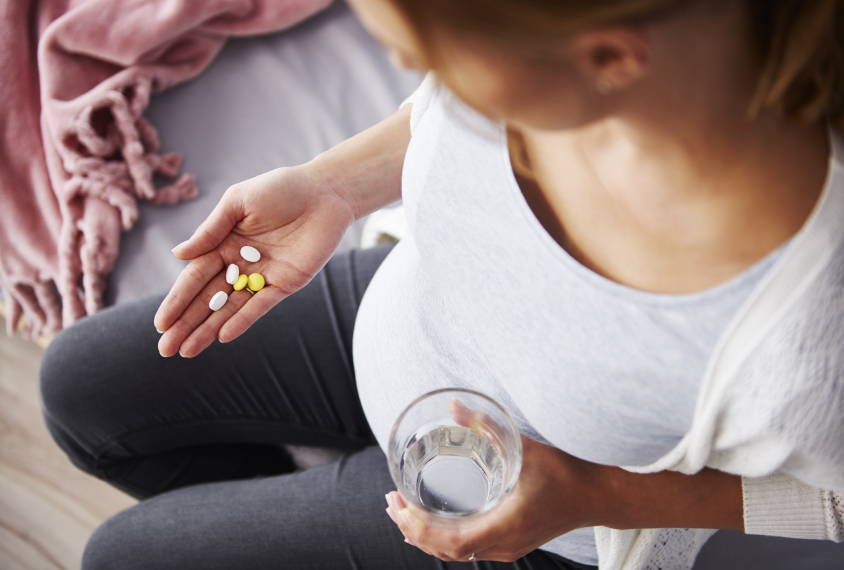Reducing Risk of Autism with Early Prenatal Vitamin Use
Over the past couple of decades, the incidence of autism has increased at a dramatic rate. According to Autism Speaks who used statistics from the CDC, the rate of children with autism was only 1 in 166 children back in 2004. In 2006, it was 1 in 150. In 2008 it was 1 in 125. In 2010 it was 1 in 110. In 2012, it was 1 in 88. In 2014-2016 it was 1 in 68 and last year, 2018, the prevalence of autism in children had jumped to 1 in 59.
Autism ranges from very mild to extreme. Sometimes, it is difficult to diagnose autism and could be based on performance in school. In other cases, it can close a child inside his or herself, cutting them off from most of the outside world. It can manifest itself in forms of genius and in forms of anger, rage and violence.
I once worked with a young man who had a mild case of autism and he acted normal most of the time, until he found himself in a stressful situation. When stress hit him, he would withdraw and close down to almost everyone and everything. His parents shared with us how to reach him in those times and help bring him out of his little shell as they referred to it.
Some parents and others claim that the increased use of vaccinations is at fault for the rise in autism. Supposedly, some claim to have studies to back up their blaming of vaccines while there are many more reports that show there are no links between vaccines and autism. However, the vaccine conspiracy continues to exist.
So, what does cause autism?
According to Autism Speaks?
“One of the most common questions asked after a diagnosis of autism, is what caused the disorder.”
“We know that there’s no one cause of autism. Research suggests that autism develops from a combination of genetic and nongenetic, or environmental, influences.”
“These influences appear to increase the risk that a child will develop autism. However, it’s important to keep in mind that increased risk is not the same as cause. For example, some gene changes associated with autism can also be found in people who don’t have the disorder. Similarly, not everyone exposed to an environmental risk factor for autism will develop the disorder. In fact, most will not.”
“Autism’s genetic risk factors”
“Research tells us that autism tends to run in families. Changes in certain genes increase the risk that a child will develop autism. If a parent carries one or more of these gene changes, they may get passed to a child (even if the parent does not have autism). Other times, these genetic changes arise spontaneously in an early embryo or the sperm and/or egg that combine to create the embryo. Again, the majority of these gene changes do not cause autism by themselves. They simply increase risk for the disorder”
“Autism’s environmental risk factors”
“Research also shows that certain environmental influences may further increase – or reduce – autism risk in people who are genetically predisposed to the disorder. Importantly, the increase or decrease in risk appears to be small for any one of these risk factors:”
What are the risk factors?
Again, turning to Autism Speaks:
“Increased risk
- Advanced parent age (either parent)
- Pregnancy and birth complications (e.g. extreme prematurity [before 26 weeks], low birth weight, multiple pregnancies [twin, triplet, etc.])
- Pregnancies spaced less than one year apart”
Researchers have now identified a way to reduce the risk of autism, especially in families with a history of autism:
“Younger siblings of children with autism are less likely to be diagnosed with the disorder if their mothers take prenatal vitamins during the first month of pregnancy, a new study suggests.”
“The researchers at University of California, Davis believe that it’s the first study to suggest that prenatal vitamin use may reduce the risk of autism recurrence in high-risk families.”
“The study, published Wednesday in JAMA Psychiatry, looked at more than 240 children whose older siblings had autism.”
“Children of mothers who took prenatal vitamins in the first month of pregnancy were half as likely to be diagnosed with an autism spectrum disorder, the study found. Those who were found to be on the spectrum had “significantly lower” autism symptom severity and higher cognitive scores.”
“‘In highly genetically susceptible families where they’re already affected by autism, our study suggests there might be a way to … mitigate that risk,’ said Rebecca Schmidt, an assistant professor at UC Davis Department of Public Health Sciences and co-author of the study.”
“She said researchers still need to find out exactly how prenatal vitamins and supplements are working to reduce the risk of autism.”
“‘We know that some of the nutrients in prenatal vitamins, like folic acid, are really critical during brain development and it’s also critical for many of these pathways that might influence autism risk,’ she said.”
Prenatal vitamins are important in a number ways as they do help provide many of the needed vitamins and compounds necessary for the health and development of a growing baby, but they also help keep the pregnant mom healthier. For one thing, prenatal vitamins are high in iron, which is vital to help prevent anemia and in maintaining a health supply of oxygen to the baby and mom.
So, whether there is a history of autism in your family or not, it is strongly recommended that you start on prenatal vitamins as soon as you think you might be pregnant.









Recent Comments